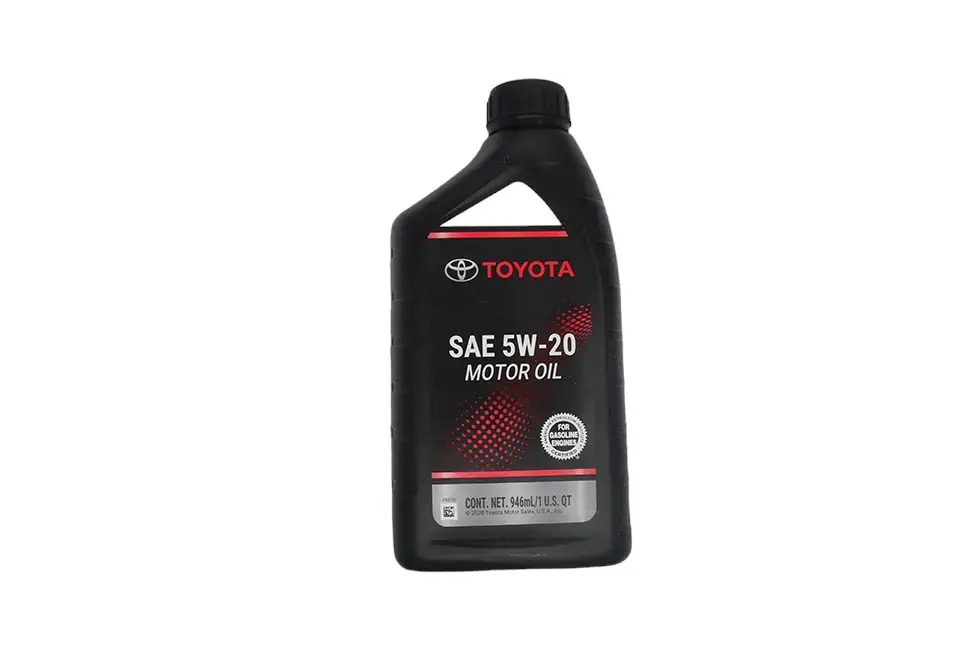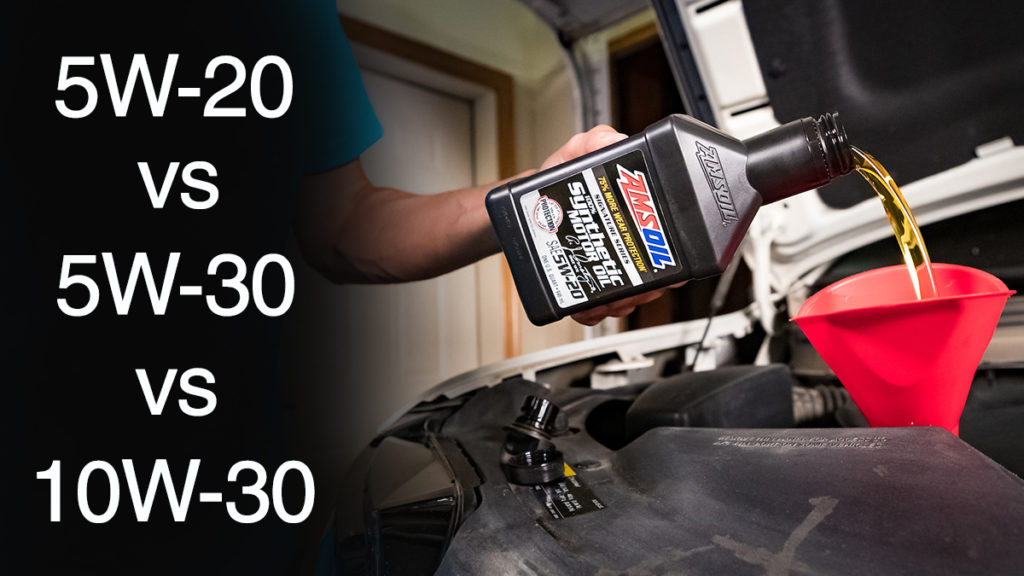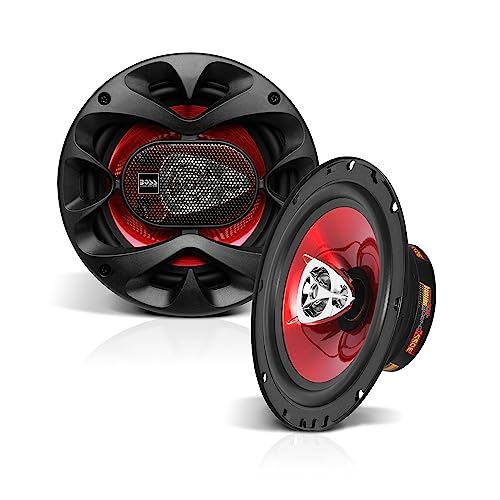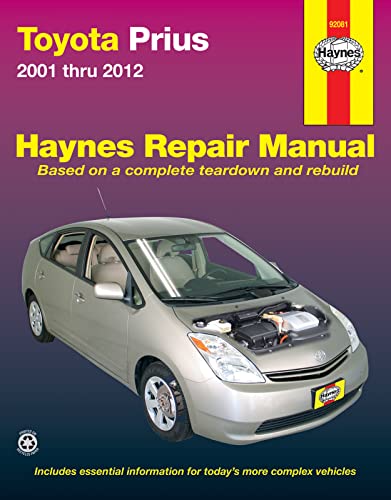As an Amazon Associate, I earn from qualifying purchases
Are you wondering if you can use 5W20 oil instead of 5W30 for your Toyota? Choosing the right engine oil is crucial for keeping your car running smoothly and avoiding costly repairs.
Using the wrong oil might seem harmless at first, but it can affect your engine’s performance and longevity. You’ll discover what the numbers really mean, how they impact your Toyota’s engine, and whether switching oils is safe or risky. Keep reading to make the best choice for your vehicle and save yourself headaches down the road.
Oil Viscosity Basics
Understanding oil viscosity is important before changing your car’s oil type. Viscosity tells how thick or thin the oil is. It affects how well the oil flows inside the engine. Using the right viscosity helps protect the engine and keeps it running smoothly.
Let’s learn what the numbers on oil, like 5W20 and 5W30, really mean. Also, see how viscosity impacts engine performance in different conditions.
What 5w20 And 5w30 Mean
The numbers on oil labels show viscosity grades. “5W” stands for winter rating. The lower this number, the better the oil flows in cold weather. Both 5W20 and 5W30 flow well in cold starts.
The second number (20 or 30) shows oil thickness at engine operating temperatures. 5W20 is thinner at high heat than 5W30. Thinner oil moves faster but may protect less under heavy load. Thicker oil offers more protection but flows slower.
How Viscosity Affects Engine Performance
Oil viscosity impacts engine parts’ protection and fuel efficiency. Thinner oil reduces friction and helps save fuel. Thicker oil shields engine parts better under heat and pressure. Using the wrong viscosity can cause engine wear or poor performance.
Engines designed for 5W30 need thicker oil to maintain proper lubrication. Using 5W20 in place of 5W30 might not protect the engine fully, especially in hot weather or heavy use. Always choose oil viscosity that matches your vehicle’s requirements.

Credit: carspecmn.com
Toyota’s Recommended Oil Types
Toyota’s recommended oil types help keep engines running smoothly. They protect engine parts from wear. They also improve fuel efficiency and reduce emissions. Choosing the right oil viscosity is important for engine health.
Different Toyota models need different oil types. These choices depend on engine design and climate. Using the correct oil ensures the engine works as designed. It also helps maintain warranty coverage.
Factory Specifications For Different Models
Toyota sets factory oil specifications based on engine needs. Some models require 5W30 oil for better protection at high temperatures. Others may use 5W20 for improved fuel economy in cooler climates. The owner’s manual lists the exact oil viscosity for each model. Following these specs ensures optimal engine performance and longevity.
Why Toyota Chooses Specific Viscosity Grades
Toyota chooses oil viscosity grades to balance engine protection and efficiency. Lower viscosity oils like 5W20 flow easier in cold weather. They help reduce fuel consumption and emissions. Higher viscosity oils like 5W30 offer stronger protection at high engine temperatures. The choice depends on engine design and operating conditions. Using the recommended grade keeps your engine safe and efficient.
Using 5w20 Instead Of 5w30
Using 5W20 instead of 5W30 oil in your Toyota may seem like a small change. Both oils have similar winter viscosity ratings but differ in their thickness at higher temperatures. Understanding how this swap affects your engine is important. This section explores the potential benefits and risks of using 5W20 instead of 5W30. It also looks at the impact on engine wear and efficiency.
Potential Benefits And Risks
5W20 oil is thinner than 5W30 at operating temperature. This thinner oil can flow more easily through engine parts. It may improve fuel economy slightly by reducing friction. Using 5W20 can also help the engine start smoothly in cold weather.
On the risk side, 5W20 may not protect engine parts as well under high heat or heavy load. Thinner oil can wear out faster in these conditions. It may cause increased engine wear over time. Using the wrong oil type can also affect engine warranties.
Impact On Engine Wear And Efficiency
Engine wear depends on oil’s ability to lubricate and protect moving parts. 5W30 offers a thicker protective layer at high temperatures. This thickness helps reduce metal-to-metal contact and wear.
Efficiency may improve slightly with 5W20 due to lower resistance. But this gain might come at the cost of increased engine wear. Your Toyota’s engine is designed to work best with the recommended oil grade. Using 5W20 instead of 5W30 can change the oil pressure and flow, affecting engine health.

Credit: autoparts.toyota.com
Climate And Driving Conditions
Climate and driving conditions play a big role in choosing the right oil for your Toyota. The weather and how you drive affect how well the oil protects your engine. Using the right oil helps your car run smoothly and last longer.
How Temperature Influences Oil Choice
Oil thickness changes with temperature. Cold weather makes oil thicker. Thick oil moves slowly in the engine. This can cause hard starts and poor lubrication.
Warm weather makes oil thinner. Thin oil flows fast but may not protect well at high heat. Using the right oil weight helps the engine work well in different temperatures.
Adjusting Oil Grade Based On Environment
Drive in cold places? Choose oil that flows well in low temperatures. 5W20 oil is thinner than 5W30 at high heat but both flow well when cold.
In hot climates, 5W30 offers better protection. It stays thicker at high temperatures. This helps protect engine parts during hot drives or heavy loads.
Think about your daily driving. Stop-and-go traffic needs better oil protection. Long highway drives may allow thinner oil. Match oil grade to your local weather and driving style.
Manufacturer Warranties And Oil Changes
Manufacturer warranties play a key role in car maintenance. Using the right oil helps protect your Toyota’s engine. Oil changes must follow the guidelines set by Toyota. Using the wrong oil can affect your warranty coverage.
Always check your owner’s manual for oil type recommendations. Sticking to these recommendations keeps the warranty valid. Changing oil grades without approval may cause warranty issues. Dealerships may refuse warranty claims if oil guidelines are ignored.
Warranty Considerations When Changing Oil Grade
Using 5W20 instead of 5W30 can affect warranty terms. Toyota designs engines to use specific oil grades. Using a thinner or thicker oil may cause engine wear. Warranty might not cover damage from wrong oil use. Always confirm with Toyota before switching oil grades. Document any oil changes outside the recommended grade. Keep receipts and service records for warranty proof.
Effects On Maintenance Schedule
Changing oil grade may change oil life and engine performance. Different viscosity oils flow differently at various temperatures. This can affect how often oil changes are needed. Using 5W20 instead of 5W30 might require more frequent oil changes. Toyota’s maintenance schedule is based on recommended oil grades. Follow the schedule closely to avoid engine problems. Adjust oil change intervals only after consulting a mechanic.

Credit: blog.amsoil.com
Expert Recommendations And User Experiences
Choosing the right oil for your Toyota matters. Experts and real users share useful advice and stories about using 5W20 instead of 5W30. Their views help you understand the risks and benefits clearly. This section gathers insights from mechanics and Toyota owners to guide your decision.
Mechanic Insights On Oil Substitution
Mechanics say oil thickness affects engine performance. 5W30 is thicker than 5W20 at high temperatures. Thicker oil protects engine parts better when hot. Using 5W20 may cause more wear in some engines. Some Toyota engines need 5W30 for best protection. Mechanics warn against switching without checking the manual. They recommend sticking to the oil grade Toyota suggests. Changing oil type can affect warranty and engine life. They advise monitoring engine sounds and temperature if switching oils.
Real-world Feedback From Toyota Owners
Toyota owners report mixed experiences with 5W20 instead of 5W30. Some notice smoother starts with 5W20 in cold weather. Others say 5W20 feels thinner and less protective in summer heat. Few users mention higher oil consumption with 5W20. Some drivers switch back to 5W30 after engine knocking. Many users stress following Toyota’s oil recommendation strictly. Regular oil checks help catch problems early. Most owners agree on using the recommended oil grade for safety.
Making The Right Oil Choice
Choosing the right oil is key for your Toyota’s engine health. The oil keeps the engine parts moving smoothly and protects them from wear. Using the wrong oil can cause problems like poor engine performance or damage. Understanding the differences between 5W20 and 5W30 oil helps you make a safe choice.
Factors To Consider Before Switching
Check your Toyota’s owner manual first. It tells you the recommended oil type. Think about the climate where you drive. 5W20 is thinner and better for cold weather. 5W30 is thicker and suits warmer conditions. Also, consider your engine’s age and condition. Older engines may need thicker oil to prevent leaks. Look at your driving style too. Heavy loads or high speeds might require a different oil weight.
When To Consult A Professional
Not sure about switching oil types? Ask a mechanic or Toyota service center. They know your car model and can give trusted advice. Seek help if your engine shows signs of trouble. Rough idling, noise, or leaks could mean oil issues. A professional can check if 5W20 or 5W30 suits your engine best. This step helps avoid costly repairs and keeps your car running well.
Frequently Asked Questions
Can I Use 5w20 Instead Of 5w30 In My Toyota?
Using 5W20 instead of 5W30 can affect engine protection and fuel efficiency. Check your Toyota’s manual first.
What Is The Difference Between 5w20 And 5w30 Oil?
5W20 is thinner at high temperatures, while 5W30 is thicker, offering better engine protection in heat.
Will 5w20 Harm My Toyota Engine In Cold Weather?
5W20 flows easily in cold weather, so it is safe for cold starts but may lack heat protection.
Is 5w30 Better For High Mileage Toyota Engines?
Yes, 5W30 provides thicker oil film, which helps protect older, high mileage engines from wear.
Can Using 5w20 Reduce My Toyota’s Fuel Consumption?
Thinner 5W20 oil can improve fuel efficiency slightly by reducing engine friction compared to 5W30.
How To Choose Between 5w20 And 5w30 Oil For Toyota?
Always follow Toyota’s recommended oil viscosity listed in the owner’s manual for best engine care.
Conclusion
Choosing between 5W20 and 5W30 oil matters for your Toyota’s engine health. 5W30 offers better protection at higher temperatures. Using 5W20 might be okay in some cases but check your owner’s manual first. The right oil keeps your engine running smoothly and saves money on repairs.
Stick to the recommended oil grade for best results. Small changes can affect performance and engine life. Always prioritize what your car needs over convenience. This simple step helps your Toyota last longer and work better every day.
As an Amazon Associate, I earn from qualifying purchases


